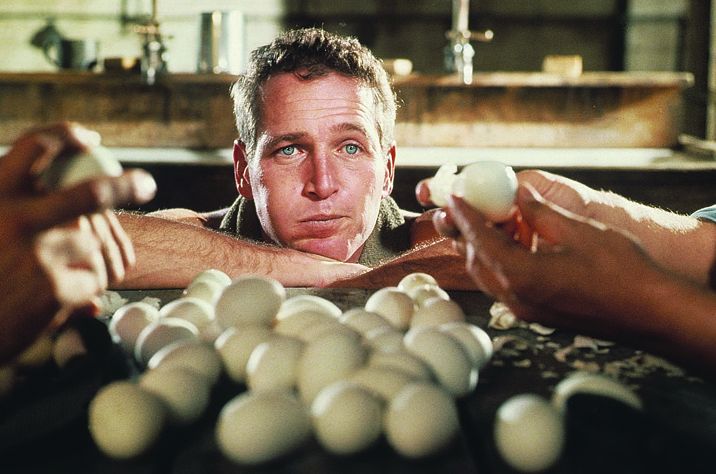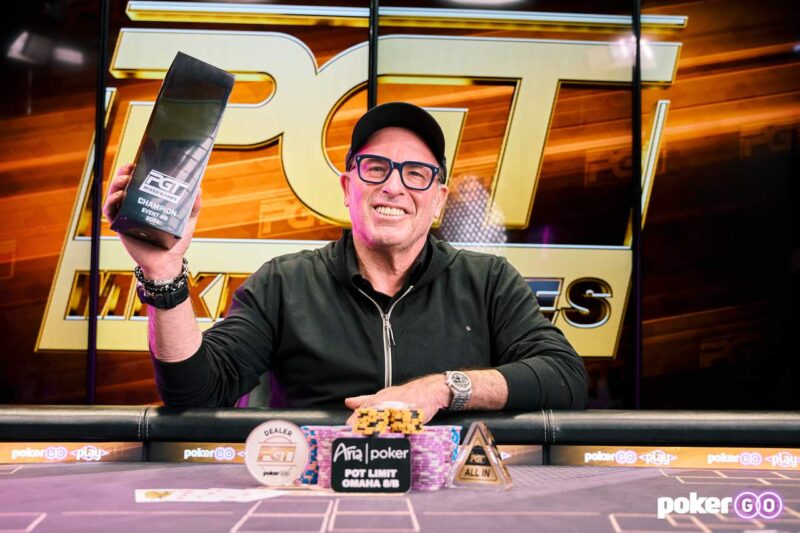I love old movies. One of my favorites is Cool Hand Luke from 1967. In it, there’s a scene where the great character actor, Strother Martin, playing a captain of a southern chain gang, instructs the prisoners that they must “get their mind right” if they’re going to succeed in his prison. One of the prisoners, Luke, played by Paul Newman, doesn’t take the hint and suffers dire consequences as a result.

So, is your mind always right to play?
The brain is a finicky organ. Sometimes it seems to work at peak efficiency and, at other times, not so much.
Are there any clues that should alert us to times when we shouldn’t be playing? When our mood, our stamina, or some other intangible should keep us away from the tables? My answer is yes, which is why I’ve put together five things that can keep us from tilting and in the right mindset to play poker.
Financial worries
Poker strategy books, especially those back before people really studied the mathematics of the game, get a lot of facts wrong about proper strategy. But, they do share one gem that I find true today: you shouldn’t play with money you can’t afford to lose.
Playing “over your head” can cause mental pressures that can warp and distort your most strategic decisions. Instead of gauging your best line of poker action based on what makes the most sense strategically, you’ll often be distracted by the risk to your financial health. If that’s the case, then your mind isn’t right to play poker.
To combat this, do an honest assessment of your playing bankroll and whether you can afford to play without causing yourself financial distress, anxiety, or distraction. If the answer is no, then don’t play.
Emotional turmoil
Poker can be an emotionally taxing activity. In a typical session, you’ll likely suffer some form of defeat many times every hour.
If you’re burdened with anxiety over a relationship, are feeling guilty about how you’re spending your time, or are deeply worried about something else like your work or family life, it can be hard to muster the intestinal discipline to shrug off the emotional weight that comes with the vagaries of chance. When other anxieties are weighing on you, your mind isn’t right to play poker.
To help you focus at the table, you need to make sure that you’re not playing just out of habit or, worse yet, compulsion. Pause for at least a few moments before your next session to assess whether you’re feeling emotionally ready to play. If so, then continue on to your game. If not, give yourself permission not to play until you’re ready. There will always be another game.
Time constraints
Some of us like to play for a dozen hours or more at a time. Others are hit and run specialists who don’t play for more than an hour or two before leaving the game. Wherever your comfort zone lies, a sure way of throwing your game out of whack is to be forced, by external circumstances, to get to, stay at, or leave the poker table before or after you’re ready to do so.
This typically takes a few forms. Sometimes, you’re trying to fit in a poker session and know you won’t be able to play for your desired session length. Other times, you’re forced into a long session because you don’t want to leave a loser or, having come with someone else, you find yourself trapped in the poker room as you wait for a buddy to be ready to leave. When any of these eventualities occur, your mind isn’t right to play poker.
The fix? Before you commit to playing, make sure you’ll have the time you want or need to play at your best. If you don’t, determine if you can adjust your expectations and come to accept the duration that has become your lot. Recognize in advance that if you start getting agitated over how short or how long your session is, then it’s time to stop playing.
A losing attitude
Sometimes, you just feel like today isn’t your day. Maybe you’ve suffered a long string of losses. Maybe outside events have conspired to make you feel you’re on the losing end of any proposition. Maybe it’s some chemical reaction within you that just has you down.
When that’s the case, your mind isn’t right to play poker.
The solution here is to learn to trust your gut. That losing feeling may be apparent to others, and may well encourage them to play better against you. If you’re heading off to a poker game feeling like you’re destined to lose, turn around, go home, and don’t give yourself a chance to prove yourself right.
Lack of physical well-being
Physical ailments can be a distraction, as your maladies can keep you from giving 100% of your energy to your game. They can also provide you with an all-too-convenient excuse for losing, When your body isn’t healthy enough to play, then your mind isn’t right to play poker.
If you think you might be too sick to play your best game, then you are too sick to play poker at all. Stay home and get better. There’s always another game.
Conclusion
One great thing about poker that sets it apart from most every other competitive activity is that it’s a game with no fixed schedule or clock. Your time is your own and you’re free to come and go as you please.
There’s no prize for losing under terrible conditions so wait for conditions to be as favorable as possible before you take a seat at the table. Before every session, ask yourself if your mind is right to play poker. If it isn’t, don’t play!


